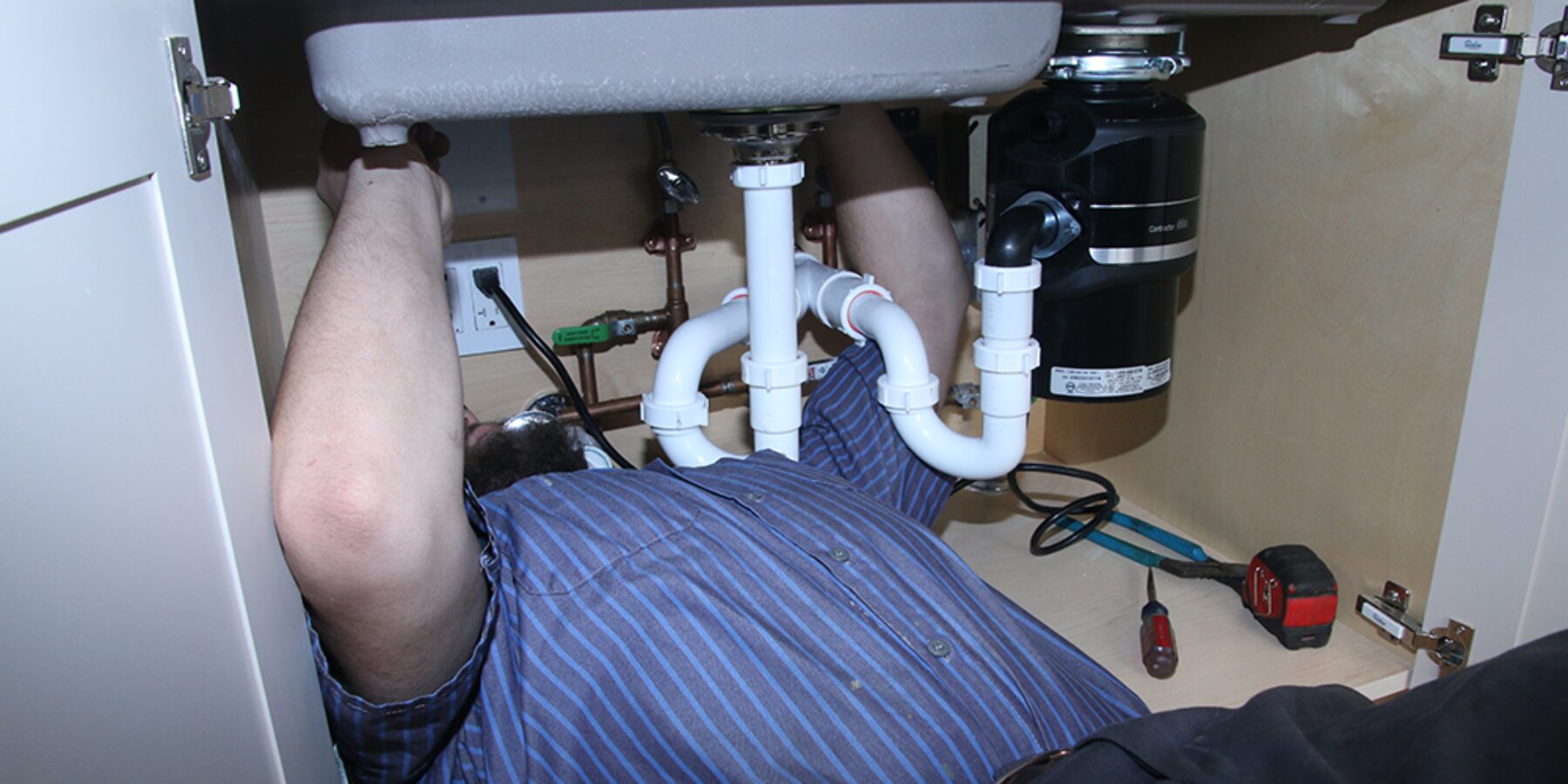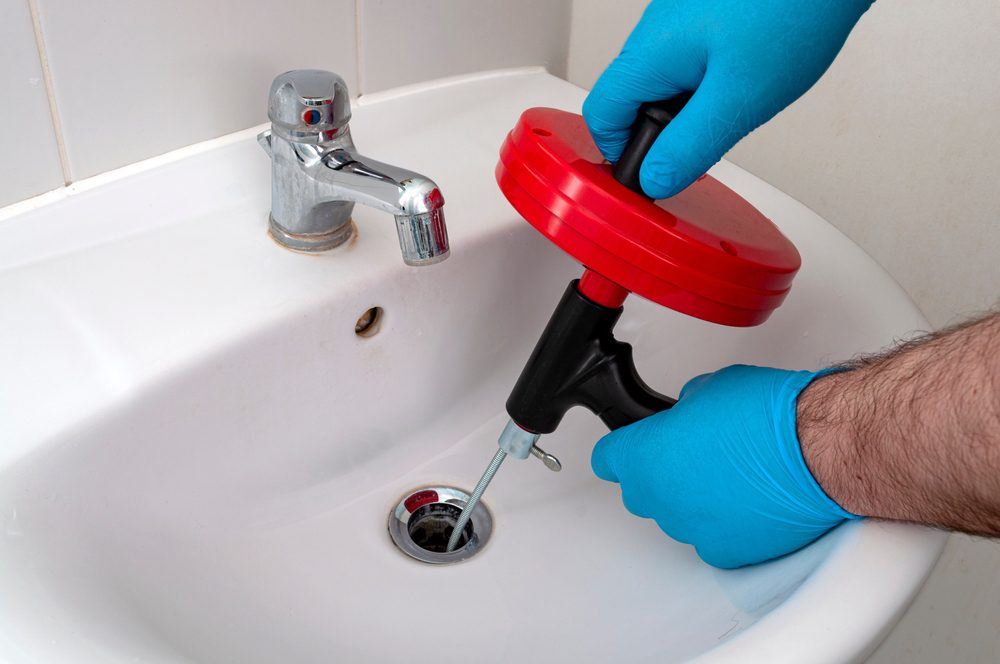Trusted Strategies For Addressing A Slow-Draining Sink
Trusted Strategies For Addressing A Slow-Draining Sink
Blog Article
This post following next relating to How to Fix a Slow Draining Sink is definitely intriguing. You should investigate it.

Introduction
We've all existed: You're brushing your teeth or cleaning your hands, and you observe the water pooling in the sink. Rather than promptly swirling down the drain, it remains, transforming your once-refreshing early morning regimen right into a small swamp scene. A slow-draining sink isn't simply annoying; it's usually an indication of bigger pipes issues hiding beneath the surface. The bright side is that a lot of slow-draining sinks can be fixed with a little knowledge, a few basic tools, and some persistence. Ready to tackle this task head-on? Let's roll up our sleeves and dive right in.
Comprehending the Reasons For a Slow-Draining Sink
Prior to you start poking around in your pipes, it helps to know what might be causing the slowdown. Recognizing the origin makes it less complicated to pick the ideal solution.
Devices and Materials You'll Need
The right devices make all the difference. Thankfully, you won't need a totally stocked plumber's van to do the job.
Step-by-Step Guide to Fixing a Slow-Draining Sink
Now, allow's get into the nitty-gritty. This detailed procedure will guide you through easy methods to restore your sink's drainage.
Action 1: Remove and Clean the Stopper
Frequently, the stopper (that tiny plug you push down to block water) is the first wrongdoer. Remove it meticulously and wipe any type of hair or substance trapped around its base. Rinse it thoroughly prior to placing it back in place.
Action 2: Make Use Of a Plunger to Dislodge Particles
Got that plunger ready? Setting it over the drain and give it a couple of company pumps. The concept is to create suction that can loosen up any type of blockage. If you see little bits of particles drifting up, you're on the ideal track.
Step 3: Try a Drainpipe Snake or Cord Hanger
If the bettor does not do the trick, it's time to highlight the drain snake. Carefully feed it right into the drain and spin as you go. You may really feel some resistance-- that's most likely the clog. Keep turning and pulling until you eliminate the obstruction. If you do not have a drainpipe snake, a straightened out wire hanger can operate in a pinch.
Step 4: Apply a DIY Drainpipe Cleaner
A natural cleaner made from cooking soda and vinegar can break down recurring gunk. Pour half a cup of cooking soda right into the drainpipe, complied with by half a cup of vinegar. Allow it fizz for around 15 mins, then flush with warm water. This chemical reaction often does wonders for small clogs.
Tip 5: Rebuild and Check the Sink
Placed whatever back with each other and run the faucet. Does the water now swirl away at a reputable speed? If yes, provide yourself a pat on the back. Otherwise, do not despair-- there are still a couple of more tricks up your sleeve.
Necessary Devices for DIY Services
A plunger is your best beginning point. A little, sink-sized bettor creates suction that can dislodge small obstructions. For even more consistent clogs, a drain snake (in some cases called a plumbing professional's auger) functions wonders. A set of handwear covers, a flashlight, and maybe a pair of safety safety glasses are likewise handy.
Suggested Cleaning Solutions
Moderate meal soap and hot water can aid break down oily build-up. A mix of baking soft drink and vinegar is a tried and true home remedy, and enzymatic cleansers provide an even more environmentally friendly method. Maintain chemical drainpipe cleansers as a last resource, as they can be severe on your pipes.
Usual Offenders Behind Slow Drainage
So, what's blocking things up? Usually, it's a combination of day-to-day debris-- assume hair, soap residue, toothpaste residue, and leftover food fragments. Gradually, these little bits collect and hold on to the pipe wall surfaces, gradually tightening the passage and making it harder for water to travel through. In some cases, natural resource from hard water can also add to the crud, creating the perfect tornado for persistent blockages.
When is it Time to Act?
If you observe the water draining slower than usual, it's a great concept to interfere quicker rather than later on. Waiting also long can lead to complete clogs, unpleasant odors, and even pipeline damage. If the water takes more than a few seconds to remove after turning off the faucet, consider it a warning and prepare yourself to place on your do it yourself hat.
Security First: Preventative Measures and Prep work
Before you launch into unclogging mode, think about safety. You're dealing with potentially filthy water and debris, so slip on a pair of handwear covers. If you're utilizing chemical cleaners, make certain the area is well-ventilated and comply with the instructions on the tag.
Protective Equipment and Office Setup
Lay down some old towels or cloths around the sink area to catch splashes. Remove any products that could enter your method, like soap dispensers or toothbrush holders. Ensure you have excellent illumination-- get a flashlight if required.
Alternate Methods for Stubborn Clogs
Not all obstructions are produced equivalent. If your sink still declines to coordinate, think about these alternative remedies.
Baking Soda and Vinegar Approach
We already touched on this, however it deserves noting again. This mild, environment-friendly method is much safer than chemical cleansers and commonly quite efficient.
Chemical Drain Cleansers
Enzyme-based cleaners use all-natural bacteria to absorb organic matter. They're a superb choice if you're seeking to prevent extreme chemicals. Just bear in mind, they might take a bit longer to work their magic.
Chemical Drain Cleaning Company: Benefits And Drawbacks
Chemical cleaners can blast via difficult obstructions fast, yet they're not without drawbacks. They can produce warmth and fumes, damages pipelines if used exceedingly, and posture environmental risks. Use them moderately, and constantly comply with the instructions meticulously.
Preventive Measures to Maintain Your Sink Flowing
Prevention is the most effective cure. By embracing a couple of simple routines, you can maintain your sink from slowing down to begin with.
Regular Cleaning Routines
Clean down the sink basin and component area routinely. Get rid of hair or food bits prior to they have a chance to wash down the drainpipe.
Staying Clear Of Harmful Materials Down The Tubes
Think twice before unloading coffee premises, grease, or coarse veggie scraps down the sink. These culprits hold on to pipeline wall surfaces, developing clogs with time.
Regular Maintenance Checks
Arrange a quick monthly inspection. Run warm water through the sink for a couple of minutes, taking note of the flow. If it appears sluggish, act quickly before it comes to be a full-on clog.
When to Call a Specialist Plumbing Technician
Sometimes, regardless of just how difficult you attempt, that clog simply won't budge. That's when it's time to generate the pros.
Signs That Indicate an Extra Significant Concern
If your sink drains pipes slowly in spite of multiple attempts, or if you notice water backing up in other components (like your shower or toilet), you might have a more significant pipes issue prowling deeper in the system.
Balancing DIY Initiatives with Expert Help
While DIY can conserve you cash and provide a sense of accomplishment, there's no embarassment in calling a specialist. A specialist plumber can assess your whole plumbing arrangement, making sure there's no underlying damage or long-term trouble that could cost you more in the future.
Contrasting Costs and Long-Term Solutions
Prior to deciding, consider the big picture. A cheap, quick fix may solve the problem momentarily, yet purchasing a more long-term solution could save you cash and tension in the long run.
Evaluating the Expenditures of DIY vs. Expert Repairs
Do it yourself fixes usually cost little bit greater than the price of a plunger or a container of cooking soda. Expert solutions, on the other hand, featured a cost yet might protect against repeated problems and expensive repair services later.
Investing in Quality Fixtures and Upgrades
If your sink's design contributes to frequent obstructions, it could be worth updating to higher-quality fixtures or altering the pipes format. Consider this an investment in your home's capability and comfort.
Conclusion
A slow-draining sink can seem like a minor irritability, yet it's often an indication that your plumbing needs a little TLC. By understanding the origin, employing the right tools and methods, and devoting to easy safety nets, you can keep your sink flowing openly. And when all else falls short, never think twice to call in a specialist-- your home's plumbing is worth the investment in care and upkeep.
Three Common Ways to Fix a Slow Drain
Baking Soda Method
Boil a full pot of water. Measure out cup of baking soda and pour it down the drain. Then take cup of the magical cleansing substance known as white vinegar and drop that down there too. Allow the mixture to fizz in the drain for five minutes as the vinegar and baking soda combine. Now dump in that whole pot of boiling water. This combination of cleaning substances should clear out anything that is causing your sink to drain slowly. If it doesn t...
Zip-It
If the baking soda method doesn t clear out your drain, it may be because a significant amount of hair and/or other debris has collected there and you need to remove it. Purchase a Zip-It tool at any home improvement or hardware store and insert it into your drain. It will catch any collected hair or debris that s blocking the flow of water. Pull it out. If it s got a big clump of hair, etc. on the end, you ve probably got your culprit.
Drain Cleaner
If these methods don t work, there is the standard drain cleaner that you can also buy in a hardware store or even your local grocery store. It s better if you can use a household solution, but these drain cleaners often work in a pinch. They re very simple to use. You generally just dump them in your drain and wait. If even this method is not effective, it may be time to call the plumber.
https://www.mrrooter.com/oneida/about-us/blog/2017/july/three-common-ways-to-fix-a-slow-drain/

I recently found that blog entry about Three Common Ways to Fix a Slow Drain when perusing the search engines. Sharing is good. Helping others is fun. We value your readership.
Schedule Free Estimate Report this page